Focus Group Discussion on “Dialogue of Civilizations”
On 29th March 2021, Pakistan Research Center for a Community with Shared Future and Communication University of China, Beijing jointly organized a Focus Group Discussion on “Dialogue of Civilizations”.
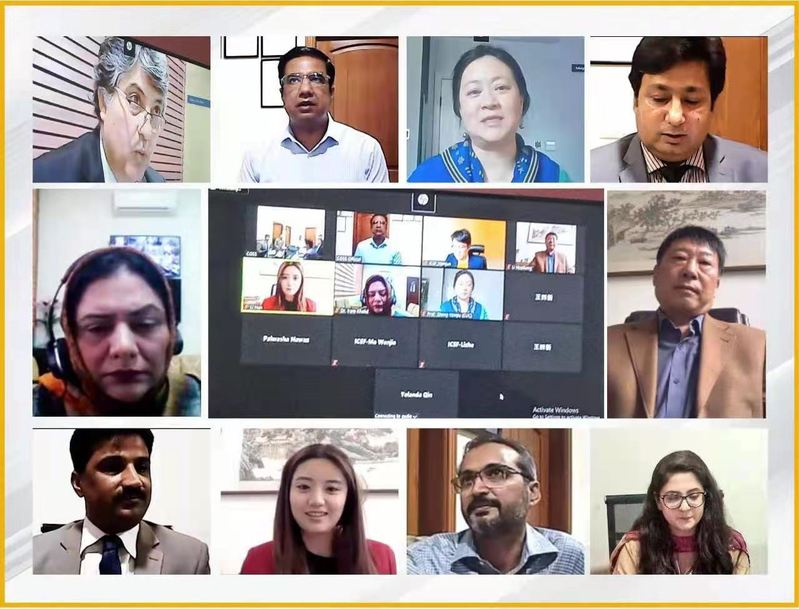
The session was commenced with the opening remarks by Prof. Li Huailiang, Dean, Institute of Community with Shared Future, Communication University of China, Beijing. He stated that the concept of “Clash of Civilizations” has led to numerous wars and killings of thousands of innocent lives. During his opening remarks, he stressed the importance of international communication and international cultural exchange.
Furthermore, he mentioned that to achieve sustainable prosperity and security, a peaceful inter-civilization co-existence is required.
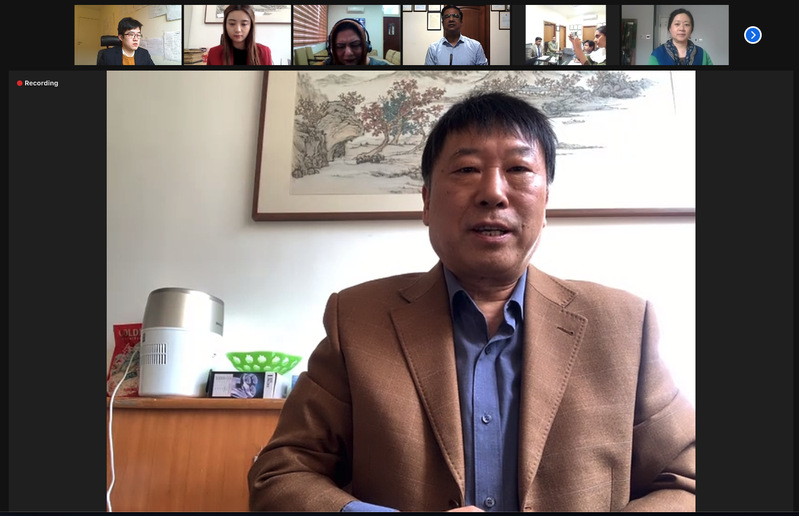
Ms. Palwasha Nawaz, Project Executive, CGSS and Deputy Director, Pakistan Research Center for a Community with Shared Future, Islamabad briefly presented the concept of Dialogue of Civilizations. She also explained the concept, aim, and objectives of the Pakistan Research Center for a Community with Shared Future.
Brigadier Zahoor-ul-Haq (Retd), PhD Scholar, National Defense University, Islamabad in his speech, under the concept of Dialogue of Civilizations, stressed upon Muslim and Chinese Civilizations. According to him, the major challenge being faced is the lack of homogeneity in the Muslim civilization. Furthermore, he mentioned that there are various sub-civilizations under the umbrella of Islam.
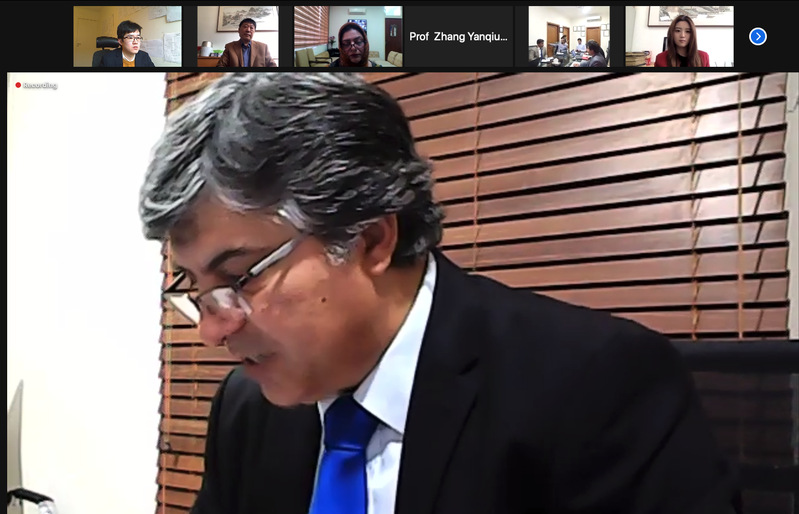
During his speech, he also explained the commonalities present between the Muslim and Chinese Civilizations. They include the system of governance, the requirement of an egalitarian society, the agenda of reforms, and the distribution of wealth.
Prof. Zhang Yanqiu, Vice Dean, Institute of Community with Shared Future, Communication University of China, Beijing highlighted the need for Cultural Inclusiveness through the promotion of global communications.
According to Prof. Zhang, the absence of dialogue between civilizations and states has led to armed conflicts all around the world. Furthermore, she added that during the COVID-19 pandemic, the cooperation and negotiations have led to improved bilateral relations between China and Africa. Additionally, Prof. Zhang mentioned that for the promotion of the concept of “Dialogue of Civilizations”, China’s international communication needs to be improved.
Prof. Zhang also stressed the importance of Constructive Journalism as a means of Public Diplomacy.
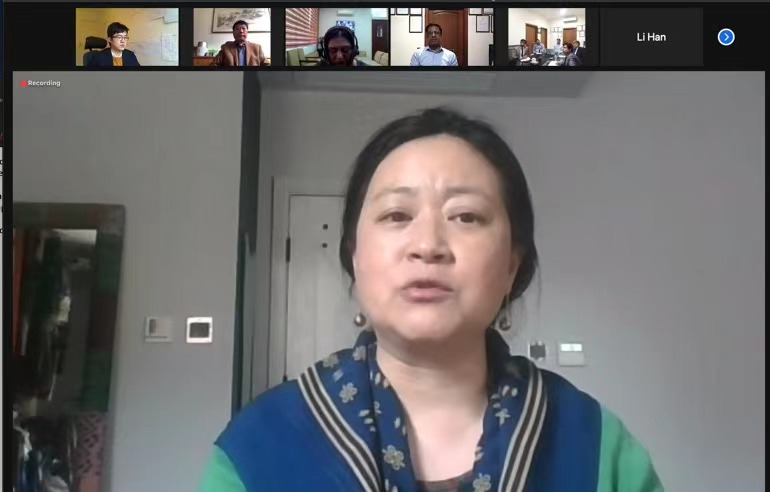
Prof. Dr. Iram Khalid, Chairperson, Department of Political Science, University of Punjab, Lahore, and Head of Program “Dialogue of Civilizations”, Pakistan Research Center for a Community with Shared Future mentioned that the steering of the changing world is in the hands of China. At present, the agenda provided by China for the world is based on Peace, Cooperation, and Security.
Furthermore, she mentioned that the concept of Dialogue of Civilizations mainly provides opportunities for inter-civilizations cooperation. During her speech, she stressed two fundamental areas. They are challenges and solutions in the process of Dialogue of Civilizations. Additionally, Dr. Iram highlighted the need to involve academia in the promotion of the concept of Dialogue of Civilizations.
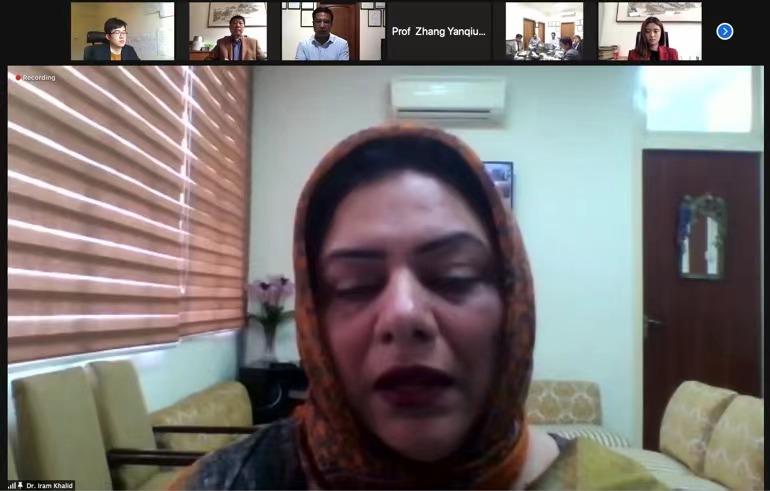
Dr. Imran Ashraf, Assistant Professor, National Defense University, Islamabad during his speech, mentioned that without the Dialogue of Civilizations, there can be no lasting peace and prosperity. Explaining the concept, he stated that full understanding and development of any civilization can only be achieved if the respective civilizational community not only takes into account but also positively interacts with other civilizations based on equality.
Furthermore, he mentioned that the concept of Dialogue of Civilizations creates hope which enables humankind to thrive under the most adverse of conditions.

Ms. Li Han, Associate Lecturer, Institute for a Community with Shared Future, Communication University of China (CUC), Beijing at the start of her speech, briefly explained and countered the concept of Clash of Civilizations presented by Samuel Huntingtin. According to Ms. Li, the Clash of civilizations is responsible for deepening divisions and divergence, and not convergence and commonalities.
According to Ms. Li, Dialogue of Civilizations is a visionary principle of global governance, world order, equal sovereignty, and lasting peace to all nations regardless of dissimilarity in forms of geopolitical systems, religion, race, transnationality, and transcultural.
She suggested that choosing common grounds and commonality in shared interests and duties for comprehension and collaboration is important.
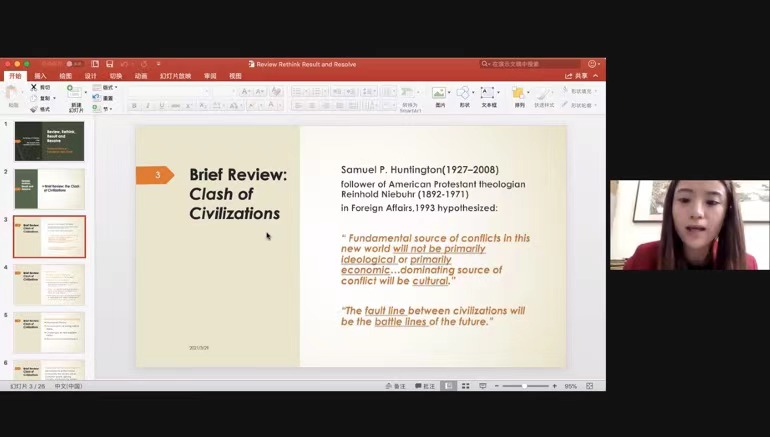
Mr. Shakeel Ahmed Ramay, Member Advisory Board, CGSS and Director, China Study Center, Sustainable Development Policy Institute (SDPI), Islamabad highlighted that for a successful Dialogue of Civilizations, China and Pakistan must recognize common indicators of development. He further elaborated that the Chinese Theory of empathy and mutual coordination is similar to that of the Chinese concept of empathy.
Mr. Ramay also emphasized that the Dialogue of Civilizations must be based on common grounds of interest for maximum benefit.
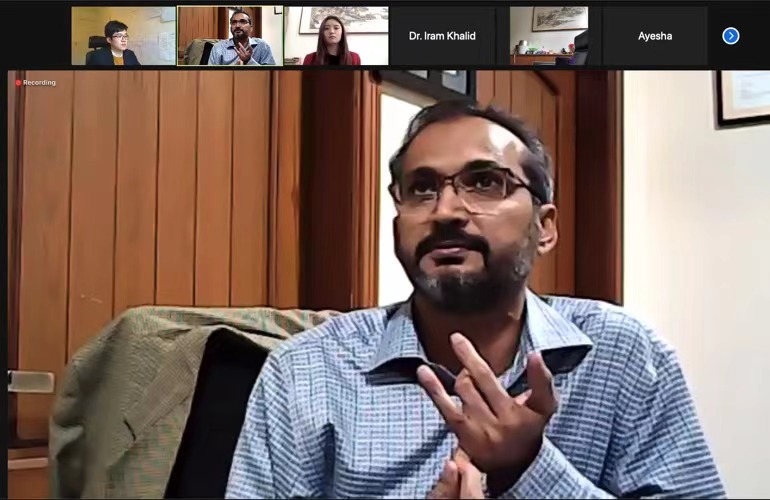
Mr. Nawaz Ali, Member Advisory Board, CGSS briefly explained the concept of Dialogue of Civilizations. Furthermore, he explained the positive impacts of Dialogue of Civilizations on the world community especially in the bilateral relations of Pakistan and China.
Additionally, he elaborated on the challenges and solutions in the process of Dialogue of Civilizations.
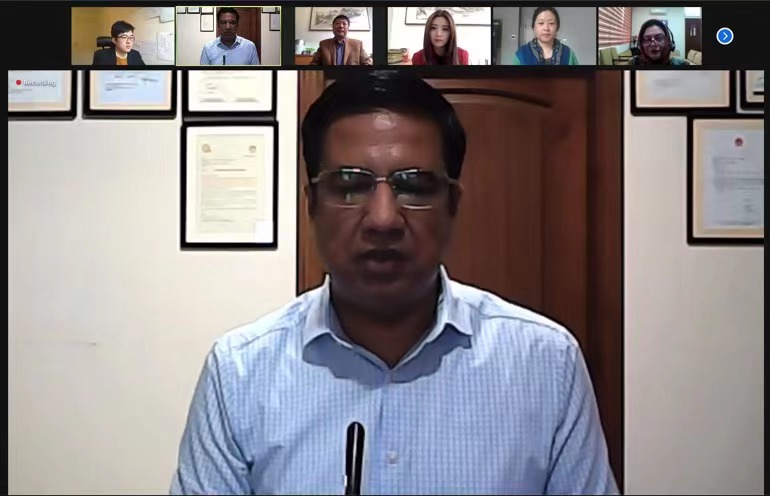
The Focus Group Discussion was moderated by Mr. Khalid Taimur Akram, Executive Director, CGSS, and Director, Pakistan Research Center for a Community with Shared Future, Islamabad. The discussion was attended by the members of the Institute of Community with Shared Future, Communication University of China, Beijing
Report Editing: CGSS
Pictures: ICSF
please see the report attached below for more information in detail:
